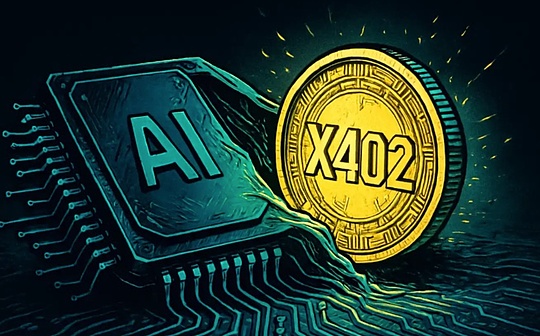
Author: taxdao
1. Introduction
Germany’s attitude towards cryptocurrencies is relatively open and friendly.As early as 2013, the German Ministry of Finance had begun to pay attention to the development of cryptocurrencies and released relevant policy documents.Germany is the first official in the world to recognize the legitimate cryptocurrency transactions such as Bitcoin. The number of Bitcoin and Ethereum nodes is second only to the United States.In addition, the German government also encouraged the banking and financial institutions to actively participate in the development of cryptocurrencies, formulated a more friendly tax system, and conducted corresponding supervision and guidance on it.
2. Overview of the German basic tax system
2.1 German taxation system
Federal German fiscal revenue mainly comes from tax revenue, other regular income and capital project revenue. Taxation has always been the main source of fiscal revenue, accounting for about 50 %.After the tax reform, Germany’s tax revenue has been growing slowly, and the proportion of fiscal revenue has steadily increased.
Germany’s tax system is famous for its complexity, multi -level structure and high efficiency.Germany is a federal state. Its administrative management system is divided into three levels of the Federal, State and local. Each level of administrative management has its own functions and division of labor.Therefore, Germany’s implementation of the federal, state, and local taxation systems will be divided into two categories: sharing tax and exclusive tax.The sharing tax is shared by the Federal, State, local governments, or two of them, and is divided between governments at all levels according to certain rules and proportions; exclusive taxes are classified as the federal, state or local governments, as their own proprietary proprietorships as their own proposal.income.
Typical representatives of sharing tax include VATZSteuer and Einkommenesteuer. The income of these taxes is jointly collected by the federal government and the state government and shared between them.The income of VAT is allocated to the states in a certain proportion, while the income tax income is allocated according to the population and economic conditions.
The exclusive tax is a proprietary income of a certain government. It is only levied and managed by the government and shared it with other governments.The exclusive tax tax includes but not limited to the real estate tax of the local government, and the land transaction tax of the state government.For example, the land tax is the tax levied by the local government to the existing land and its ground buildings. The tax rate is determined by the local government by itself, reflecting the characteristics of the city’s policy.
2.2 Main tax types
2.2.1 Enterprise income tax
Enterprise income tax taxes are divided into unlimited obligations taxpayers and limited obligations taxpayers.Unlimited obligations taxpayers, that is, companies located in Germany have taxpayers’ liability for income from the world; limited obligations taxpayers, that is, companies located outside Germany have taxpayers only from their liabilities in Germany.If the signing between the two countries has a double taxation agreement, foreign companies can usually enjoy the discount of tax reduction and exemption.German corporate income tax rate is 15%.
2.2.2 Personal income tax
German resident residents bear unlimited taxpayers, that is, all their domestic and foreign income taxes; non -German resident residents bear limited taxpayers, and usually pay only in terms of their income in Germany.The scope of personal income income tax collection includes: income engaged in agriculture and forestry, income from industry and commerce, income from freelance occupations, employment income, investment income, rental income and other income.In the form of classification and syndrome, the income tax rate is progressive. The tax rate is between 14%-45%, and there is a basic reduction.
2.2.3 VAT tax
VAT in Germany is a circulation tax and consumers bear the final tax burden.The current value -added tax rate is 19%nationwide, and a 7%preferential tax rate is applicable to foods, books and other products.The value -added tax invoice obtained by the enterprise during the operation can be deducted as the input tax during the declaration of value -added tax.
VAT declaration is submitted to monthly and quarterly declarations. The new enterprise or the monthly value -added tax payment of the previous year is less than 7,500 euros. You can choose to declare according to the quarter.The monthly payment of more than 7,500 euros, the monthly declaration is still required, and the deadline for the declaration is the 10th of the next month.In addition, enterprises need to pay a settlement of value -added tax at the end of the year.
3. German encryption tax policy
3.1 The qualitative of cryptocurrencies
Since the birth of Bitcoin in 2009, the scale of transactions involving cryptocurrencies has expanded sharply.In this context, on February 27, 2018, the Federal Federal Ministry of Finance issued a public letter based on the European court based on the “Hedqvist Case”.The Ministry of Finance believes that the rules for exchange between Bitcoin and traditional currency can also be applicable to the exchange between other virtual currencies and traditional currencies.
The German government’s definition of crypto assets is relatively extensive.According to documents released by the German Federal Financial Supervision (Bafin) in 2020, it has created a broader definition for cryptocurrency assets. Cryptocurrencies are used as a financial instrument. Although they do not meet the definition of traditional financial instruments, they have currencies orThe legal status of money can be used as a medium and can be transmitted, stored and traded by electronic.The German Federal Finance (BMF) pointed out in 2022 that a single unit of cryptocurrencies was assets.They reflect the ability to distribute the economic interests assigned to the owner to another public key.They can be valued according to market prices, and the market price can usually be determined through exchanges, trading platforms or listed companies.The beneficiary everyone means that transactions can initiate a transaction, so as to “control” virtual currency or other tokens to which public keys.Usually, this is the owner of the private key.However, if the transaction starts through the platform that stores the private key or is allocated according to the instructions of the beneficiary owner, the belonging is not affected.[1]
In terms of tax policies, Germany defines cryptocurrencies as special products with dual attributes of currencies and property. The main cryptocurrencies (such as Bitcoin) are regarded as legal private currencies, and illegal currencies, holding, trading, and use crypto encryptionCurrency is a legitimate behavior.At the same time, because cryptocurrencies are asset nature, their trading and profits are usually taxed in accordance with the provisions of personal income tax and capital profit tax, and value -added tax is exempted.
3.2 cryptocurrency tax system
In Germany, the profit of cryptocurrencies and transactions are deemed to be capital gains.According to the German income tax law, if the cryptocurrency held by individuals exceeds one year, the capital income obtained at the time of sale is duty -free.If the holding time is less than one year, the income at the time of sale needs to pay capital benefits.If the profit obtained from cryptocurrency transactions in a fiscal year does not exceed 600 euros, according to the German tax law, this part of the income can be exempted from tax.This provides a certain tax discount for small personal transactions and investment.
In terms of mining and pledge, cryptocurrency income obtained through mining is usually regarded as part of commercial activity income. The income should be used as tax taxes, but the costs incurred during the mining process can be deducted.For the income obtained by cryptocurrency pledge, if the holding time is more than one year, these income is tax -free; if less than a year, the income tax is required.
In terms of airdrop and fork income, if the airdrop tokens are related to commercial activities, the tokens received are considered commercial income.The tokens are valued at the market price when receiving it; if the airdrop involves providing services (such as promoting projects on social media), the income of such services belongs to other income stipulated in Article 22 of the Income Tax Law.Price declaration.Barbone refers to the hard fork or soft fork of the blockchain.The hard fork will generate new virtual currencies. The tax treatment is as follows: The newly generated token is considered an independent asset. The acquisition cost of the distributed original tokens needs to be allocated at the market price ratio of the two tokens when the fork.The fork itself does not constitute a taxable incident, but if the new token is sold during the holding period, the income needs to pay private sales transaction tax.
In addition, according to the “Einzelfragen Zur ErtragsteuerRrechtlichen Behandlung Von Virtuellen Und Vonstigen” issued by the “Einzelfragen Zur ErtragsteuerRrechtlichtlichtlichtlich TOKEN” issued by the German Federal Ministry of Finance. Exchange exemption exemption value -addedTax.This means that the purchase and sale of cryptocurrencies itself will not generate VAT, which further reduces the tax burden on cryptocarn transactions.In addition, when cryptocurrencies are used as a payment method for purchasing goods or services, their value -added part may need to pay income tax.
4. The construction and improvement of the German encryption supervision framework
The German Federal Financial Regulatory Authority (Bafin) officially defines cryptocurrencies as crypto value (Crypto Values), regarded it as a new type of financial tools, and introduced the “cryptocurrency custody business” as a new type of financial services.According to Bafin’s requirements, since January 1, 2020, any company that hopes to provide cryptocurrency custody services, including Bitcoin Exchange or Bitcoin custodian, must obtain Bafin permission.
In 2020, Germany implemented the Fifth EU Anti -Money Laundering instruction (AMLD5), requiring cryptocurrency exchanges and wallet providers to comply with strict AML/CTF regulations.These regulations include due diligence, reporting suspicious transactions, and implementing internal control measures to ensure the transparency and compliance of the market.
In May 2021, the German Federal Parliament passed the Gesetz Zur Elektronischen Wertpapieren (EWPG).EWPG stipulates that encrypted securities are defined, and it is used as a sub -category of electronic securities.The implementation of the German Electronic Securities Law marks important steps in Germany in the field of digital finance, helping to ensure technology neutrality, improving the efficiency of financial markets, and reducing operating costs.The introduction of this law also responded to the German government’s position to promote the principles of blockchain strategy and technology neutrality.
In November 2021, the new German government mentioned cryptocurrencies in its alliance agreement and advocated establishing an equal competitive environment between traditional finance and innovative business models.The alliance calls for the establishment of a new dynamics to ensure the supervision of comprehensive and risk needs to be comprehensive and risky.
In 2022, the Federal Ministry of Finance of the German Federation released the first national cryptocurrency tax guidelines “Individual Issues on the Treatment of Virtual Currency and Other tokens”, which involves taxation scenarios such as mining, pledge, lending, hard fork, and airdrops.It has been mentioned that the guide further improves the German crypto supervision framework and shows the German government’s positive attitude towards cryptocurrency supervision.
5. Summary and outlook
In terms of taxation system, Germany shows a tolerance and friendly attitude towards cryptocurrencies, aiming to balance innovation incentives and risk management.This is mainly reflected in the aspects of small income tax exemption, tax benefits and VAT exemptions for personal investment.In the future, Germany may continue to optimize its cryptocurrency tax policy to meet the needs of market development and international cooperation.
In terms of regulatory systems, Germany’s cryptocurrency supervision environment is considered one of the most friendly Europe, providing a safe and transparent investment environment for cryptocurrency investors.With the rapid development of the cryptocurrency market and related technologies, Germany’s regulatory framework needs to maintain adaptability in the future to cope with emerging challenges and opportunities.Germany may strengthen cooperation with other countries and international organizations in cryptocurrency supervision to promote the unity of global regulatory standards.
In short, the development of cryptocurrency tax and regulatory system in Germany is providing increasingly clear guidance and incentive measures for the country’s cryptocurrency industry. We believe that Germany can create an ecosystem that is conducive to the healthy development of cryptocurrencies.Then feed back the prosperity and development of the German economy.
Reference
[1] .bundesministerium der Finanzen. (2022, SEPTEMBER). Internetaler informationsaustausch zu transaktionen übergesweerte. Monatsbericht des BMF.
[2] .andreas Fillmann. (2021, JUNE). German Law on the intranic Securities. Retrieved from Souire Ratton boggs.
[3]. Deng Yuanjun. Germany’s tax system and learn from [J]. Journal of the School of Taxation of Yangzhou University, 2002 (04): 29-35.
[4]. The State Division of the State Administration of Taxation’s International Taxation State (Region) Investment Tax Guide for Investment Taxation Guide. (2021) Chinese residents go to Germany to invest in taxation.
[5]. The Ministry of Commerce of the People’s Republic of China. (2020) How much is the German taxation system?








